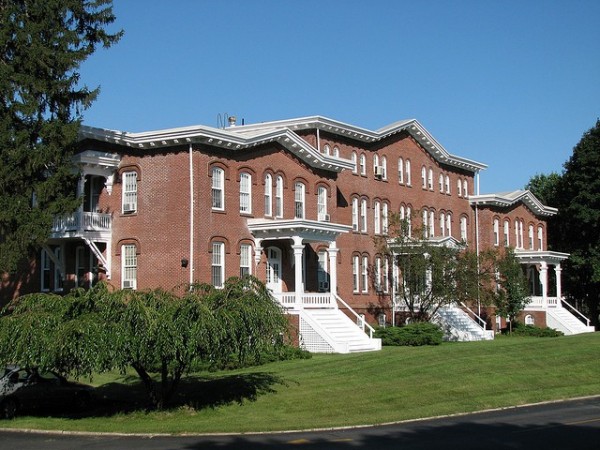Listen Up Language Learners: 10 Things You Do
Better When Bilingual
We
all know that being bilingual (or even multilingual) increases your ability to
communicate with more people across the world, which is a pretty cool perk to
learning another language. But did you know that being bilingual helps you in
far more ways than just communication? Here are 10 things that you can do
better when you’re bilingual:
Noisy Classroom? No Problem!
New
studies carried out by Anglia Ruskin University have shown that bilingual
children are better at tuning out noise. This means that bilingual students are
better able to learn and concentrate in a noisy classroom that their
monolingual classmates. This ability to concentrate despite the distractions
going on around them leads to an overall better school performance. A great
reason to start learning a new language while you’re young? We think so.
Improved Problem Solving
According
to the New
York Times, studies have shown that bilinguals are able to solve certain
mental puzzles quicker than their monolingual counterparts. This is because
they are used to directing their attention between conflicting thought
processes (like two different languages) and are better able to channel this
same focus to other tasks.
Closer Attention to Surroundings
Not
only are bilinguals better at ignoring distractions, they are also better at
paying attention to the environment around them. As they switch between
languages, making a judgement on what is being said to them in a
certain language and how to respond, sharpens their ability to keep track
of their environment and its changes. Observation and Monitoring tasks?
Advantage bilinguals!
Superior Listening Skills
Learning
other languages also helps with listening
skills. Bilinguals are much more adept at recognising other languages –
even ones that they don’t actually speak! Not only does this help you when
there are foreign accents around you, but it also helps the listening
skills in your primary language. You’ll be better at picking up subtle nuances
in other people’s speech, thus improving your overall communication.
Better Memory
Learning
a second language is beneficial for overall cognitive development, including
memory. Since bilinguals have to store two sets of vocabulary in their mind and
are used to accessing the correct one, they get great practice at storing and
using information. Plus, good memory helps with studying, another reason
bilingual students do better in school than monolinguals.
Big Crowds, Better Focus
Trying
to find your way in a crowded train station? Studying in a loud coffee shop? No
worries if you’re bilingual. In fact, it might actually be easier in the chaos for those who are
used to it – zoning out external distractions becomes almost second nature.
A Different Point of View
The
great thing about changing between languages is that you’re better able to
change your perspective and to think in different ways. An interesting
study looked at how people acted differently when they were asked to make
decisions with varying degrees of risk and uncertainty. Participants were asked
in their first and second language, and showed different behavioural patterns
as they switched languages. The idea is that because a different language
forces you to think differently, it also influences your behaviour, allowing
you to escape a singular paradigm of thought
Master Multitasking
Since
bilinguals are used to switching quickly between languages while blocking out
distracting influences, this naturally helps in their ability to multitask. And
frankly, what better skill could you have in the 21st century, when you’re
bombarded with new information and new tasks from all sides? Being able to
multitask is an incredibly valuable asset in this busy world. A great added
perk of being bilingual!
Life-Long Benefits
An
amazing thing about being bilingual is that the benefits extend throughout
your whole life. Research has shown that bilinguals have a greater resistance
than monolinguals to the onset of dementia and Alzheimer’s disease. The
greater your degree of bilingualism, the later in life these diseases are
likely to affect you, if you’re susceptible. Think of learning a second
language as a long term investment in your mental health.
More Languages? More Money!
If
the cognitive benefits aren’t enough for you, here’s a financial
incentive: research
shows that people who speak more languages earn more money than people who can
speak only one. This makes sense when you consider that we live in a globalised
world; contact with foreign countries and other languages is inevitable. Being
able to speak another language gives you a competitive advantage in the
workplace. You’re more likely to get hired and companies have more incentive to
pay you more money. And hey, money talks…
